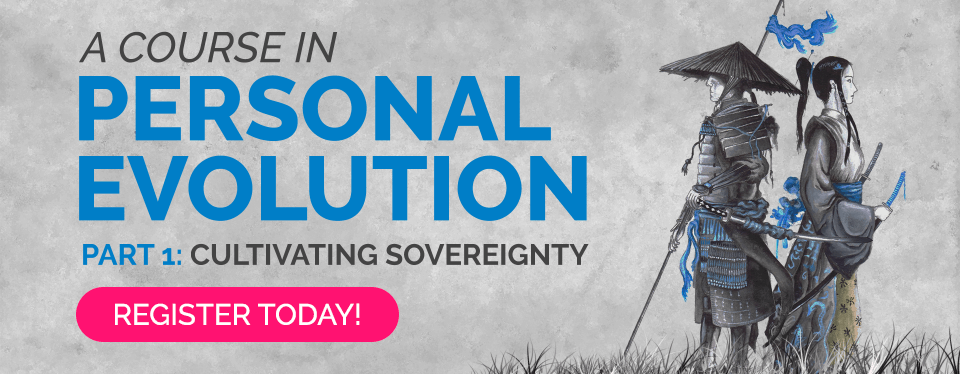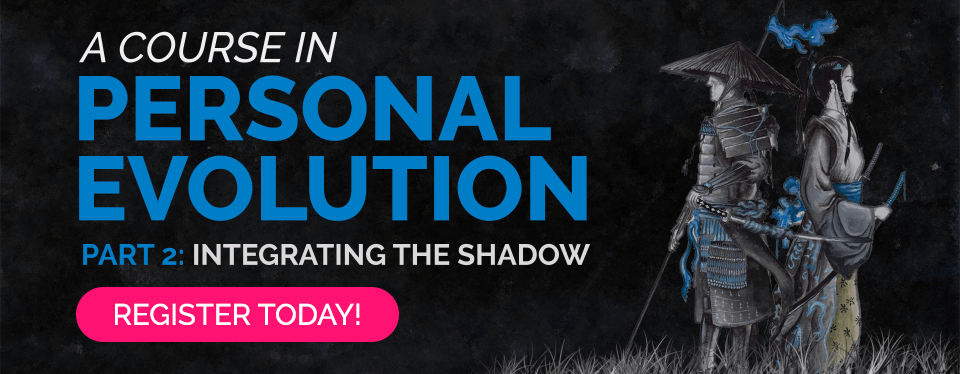Podcast: Play in new window | Download
Mike: Today we’re going to be talking about finite and infinite Games. This is a very, very dense book that Euvie and I both read a number of times now about the difference between [00:00:30] finite and infinite games. Why don’t we dive into that and you can give us a bit of an intro?
Euvie: Sure. This book was recommended by Daniel Schmachtenberger and it’s by James P. Carse. It’s a book about game theory but it’s actually a lot broader than that. It’s a framework for how to operate in life in general. It applies to every part of life, from work, organizations, relationships, [00:01:00] career, how countries interact with each other, how we relate to nature. It goes very, very deep. Actually, it’s interesting because James P. Carse studied religion for quite a long time. The book has this spiritual undertone which is not obvious, but I definitely noticed it and I thought it was really interesting. To summarize, the idea is this: finite [00:01:30] games have defined rules, defined timelines, defined players, everything is laid out in neat little boxes and then, when the rules are fulfilled, there’s an agreed upon end to a game and then everybody goes home and there’s a winner and a loser.
Infinite games are very different. They don’t have a defined end, they just go infinitely. There’s no predetermined outcome [00:02:00] or specific event or a specific thing that people are aiming for when they’re playing them. The only goal is just to keep playing for as long as possible and maybe an expanded goal is to make sure that other people are able to play with you and everybody’s able to enjoy themselves and grow and evolve together. It’s two very different approaches to life. He talks about how you can have [00:02:30] many finite games within an infinite game, but you can’t encompass an infinite game within a finite game. Even if you just think about it mathematically it makes sense.
Mike: Yup. One of the interesting things that happens is when players that are playing different types of games play against each other and don’t know that they’re doing that. When you have finite players matched up against infinite players they tend to be in it to win the game, they’re a lot more selfish, they’re not about perpetuating the game and they [00:03:00] often don’t see that that would be even worth doing. An example of that would be you’re playing monopoly with your kids and you keep beating the hell out of them every single time. Eventually, they’re not going to be as interested in playing with you. The infinite game collapses at that point because you were too focused on winning the finite game.
Euvie: By beating the hell out of them, you didn’t mean physically beating them but just beating them at the game.
Mike: Either or.
Euvie: Either or.
Mike: Both. [00:03:30] Less likely to play the game.
Euvie: In that example, if you were playing an infinite game how would you play it?
Mike: You would let them win every once in a while. Just make it a little bit easier, so they’ll keep coming back to the table. I found this plenty of times when I’ve played video games, because I didn’t have much of a social life when I was a kid and I would just play first person shooters all the time. I got really good at it. You’d spawn kill people or do really shitty styles of playing and make people [00:04:00] super frustrated. My brother used to swing his controller at me and throw it at my head because he would get so pissed off. After a while, I got wise to that and learned that I got to maybe not play so hard against people, let them win every once in a while. Then the game got a lot more fun after that. Yeah.
Euvie: Right, but then when you match up finite players against finite players, it’s fine. The game is stable. In soccer, for example, everybody knows [00:04:30] what the rules are. If somebody breaks the rules, these are the consequences. This is the timeline that the game lasts for. This is what constitutes winning. It’s very clear and everybody agrees to it, everybody enjoys it and participates. Likewise, if you have infinite players playing against each other, they also understand that the goal is keep playing and it’s not about winning or losing, it’s about just perpetuating the game.
Mike: Yeah. A good example of a finite player [00:05:00] versus an infinite player would have been the Vietnam war. The US was playing a finite game not realizing that they hadn’t defined what winning the war would look like. For the Vietnamese people, it was about simply continuing to exist.
Euvie: Survival.
Mike: Survival. It wasn’t a matter of getting to a finish point, it was like, “Let’s just keep fighting, keep fighting, keep fighting until these guys leave.” That’s why, in the end, US ended up losing.
Euvie: Yeah, there’s another [00:05:30] aspect to finite games that James P. Carse talks about and it’s that they are… I think he calls it theatrical. There’s a performance aspect to it, where it requires an audience a lot of the time and people want recognition and titles and status and all that stuff. If other people are not participating in this kind of theatrical aspect of it and if they’re not recognising [00:06:00] that these titles have been achieved or these goals have been met, then the game falls apart. That’s also an argument that he makes about the Vietnam war is that Americans just lost on audience. It fell apart because nobody was interested in it anymore and they weren’t going anywhere, they weren’t winning in a way that was socially verifiable. They just left.
Mike: Another thing this book talks about that I thought was interesting related to another book I’ve been reading, [00:06:30] which is Sapiens, is the collective fictions that we all believe in. Whether that be titles, property, laws, any number of things, corporations, any number of things that make up our social, political, economic fictions that we all collectively believe in and, therefore, behave differently as a result. What are your thoughts on that from the book?
Euvie: Yeah, he talks about how, when people play [00:07:00] finite games there’s always a part of them that knows that it’s an act, that it’s not them who is playing, that it’s a character who is playing a finite game. Over the course of somebody’s life, who you are is always changing, it’s always in flux, but then, in order to play a finite game, you have to adopt this very specific identity and very specific character. It’s not you who plays the game, it’s the character that plays [00:07:30] the finite game.
Mike: That’s where it comes into the almost religious connotations there, where it’s like…
Euvie: Yes, “What is the self?” A lot of Buddhist and Hindu undertones in the book, where the self that people think they are – their ego, their identity – is not the real self and that the real self, well, actually doesn’t exist because it’s just this fluid, never ending process basically of evolution.
Mike: What are some practical applications [00:08:00] of finite and infinite games in people’s real lives?
Euvie: Yes, actually really interesting because you can apply would it to literally everything. For example, in people’s career an example of a finite game be trying to achieve titles, promotions, get a specific number that you’re getting paid per year, get a bonus or whatever. Then the infinite game is just your whole career, [00:08:30] the whole thing and the idea is just to keep growing, to keep getting better.
Mike: Personal growth and evolution. How you develop your skills.
Euvie: Yeah, providing more value, improving your skills. There’s a really interesting aspect. He talks about how when you are a finite player you’re always playing against other people and you’re competing with other people. When you’re an infinite player, you’re only competing with yourself [00:09:00] because there’s no end to the game. It’s not about winning or losing, it’s about continuing to play and what do you do when you’re just continuing to play? You’re always evolving, you’re always getting better, you’re always improving, adopting, etcetera.
Mike: The other thing about finite games is that infinite players, infinite games, those types of players end up dropping out over time through death. It’s this constant influx of new players and leaving of other players, and some people can play, [00:09:30] some people can’t, but everyone – if they’re alive – is playing some sort of infinite game. If they’re playing finite games, then they have to basically agree to be playing, they have to agree to the terms, the rules and everything. If they don’t agree, then they break the game, so they’re technically not really playing the finite game. I think another interesting example of finite and infinite games is relationships.
That’s when we could look at hook-up, dating culture, where the goal of the finite game is to sleep with as [00:10:00] many people as possible to increase the quality and the quantity of the people you’re having sex with. The infinite version would be the seeking a long-term relationship where you and the other person can actually grow and build with each other. Yup.
Euvie: Yeah. It’s no wonder why people are so miserable in the dating culture today, because they can’t, they can’t grow if they are just going through one hook-up after another. Actually, [00:10:30] there’s a talk that we watched by Tony Robins and he talks about the six basic needs that drive people. Four of them are just the basic humans needs and the two are growth needs. I don’t know if we mentioned this before, I think we did. One of the two growth needs is, well, growth and the other one is giving. If you are in a hook-up culture, you can’t actually fulfil either of those needs within [00:11:00] the context of that relationship. You can’t really grow and you can’t really give because it’s transactional, you’re taking.
Mike: Any other examples we should cover before we wrap this one up?
Euvie: Sure. I think how organizations approach themselves is a great example of finite and infinite games.
Mike: Yeah, that’s right. When you have organizations or companies, you generally, if people are playing the finite game, they’re looking at their competition. The companies that are playing the infinite [00:11:30] game are looking out at the horizon of what is possible in a vision of the world or what they want to be in the extended future. That future might actually never arrive for them, they might die before that is ever reached. People fighting for the rights of women to vote. A lot of people that initiated the original legislation that would allow that to happen died before it ever happened, but their goal was eventually succeeded and they had to dedicate themselves to the infinite game in order to make that happen, because the achievement [00:12:00] of that goal would take so long that they would never see it in their lifetimes.
Euvie: Even on a smaller scale, companies that are more interested in innovation and growth and improvement, constant improvement of what they’re doing, to provide more value to make their customers more happy tend to outlast the ones that are just focused on quarterly profits. Also, the people who work for those companies [00:12:30] I think generally feel more of a sense of purpose and pride in what they do.
Mike: Yup. I think I glazed over that point a little too quickly about the competition looking at each other if they’re playing the finite game. They can never actually catch up to where the infinite player is, because the infinite player’s looking way ahead. The finite player is just responding to what is going on in the immediate. They’re constantly [00:13:00] running all over the place and changing direction and trying new things, then failing and trying other things and failing, because they’re just adapting to the infinite player. Or the infinite player has just got this north star they’re always heading to.
Euvie: Right. Even if you think about it in terms of energy expenditure when you’re constantly changing direction, it’s very inefficient.
Mike: Exactly.
Euvie: But when you’ve got a north star and you’re just chugging along and going towards that goal, slow and steady as it may be it’s a lot more efficient. [00:13:30] Yeah.
Mike: Any other points we want to get through? I think that’s probably it.
Euvie: Yeah. I think maybe we can stress the point of why it’s even worth it to play an infinite game.
Mike: Right.
Euvie: One of the arguments that was brought up in the book is that infinite players just tend to outlast finite players.
Mike: Right.
Euvie: Because finite players, if they can’t win they tend to run out of resources or the [00:14:00] will to play and they drop out. Whereas, infinite players, they’re not trying to win they’re just trying to keep playing so they keep going and going and going and going. They might still drop out if they run out of resources to play or they die, but the game continues.
Mike: I really like the comparison that we were talking about when we were reading that book together of it being the players becoming aware that all of reality is a stage. It was the same thing that’s described in Buddhism and Hinduism and [00:14:30] lots of esoteric books is that this is just a game that you become aware of and that when you’re aware of the finite games you start entering into more of the infinite game.
Euvie: right.
Mike: When people are confused about which type of game they’re playing, that’s when they cause themselves the most pain.
Euvie: Yeah. A very basic everyday example of that would be that a lot of millennials have this idea that they want to change the world, [00:15:00] but then when they go about and do something a lot of the time they’re playing a finite game. Whereas, changing the world, you could see it as an infinite game. For example, the way that Facebook has run, they talk about changing the world but actually they’re after quarterly profits and it’s been leaked now that they’re trying to make their app as addictive as possible. They’re purposely screwing up people’s mental state in order to get more profit. That is [00:15:30] definitely not an infinite game.
Mike: Maybe if we can think of more on the ground, immediate, person to person examples of how using this type of infinite game mentality might be helpful.
Euvie: With relationships, for example, when you play an infinite game and when you’re growing together with someone and you’re changing together with someone, there’s compounding interest. Things build on top of themselves. [00:16:00] Whereas, with a finite game you have to start over and you have to create things from scratch every time. Then with a relationship that’s just ongoing indefinitely, you have these structures and then you build on top of those things and then on top of those things.
Mike: Right, it’s the same thing as the company that spends all of its resources and time going back and forth and changing things and never really building [00:16:30] a foundation like the infinite player does.
Euvie: Exactly, yeah. For a company, for example, they might have processes that they’re tweaking constantly over years and years and perfecting them, like a grandma’s recipe that’s being passed down through generations and is just getting tweaked and becoming better and better over time.
In this episode we are discussing the concepts from the book “Finite and Infinite Games” by James P. Carse. It’s a great book that explores game theory as a general framework for how to operate in life. It applies to every area: work, relationships, business, politics, how we treat nature etc. We talk about what finite and infinite games are, and how to recognize which game we are playing. We also go over examples and practical applications that can help with gaining perspective and making wiser choices.
In This Episode of Future Thinkers:
- What are the characteristics of finite games?
- What are the characteristics of infinite games?
- How finite and infinite games and their players mutually relate
- The theatrical aspect of finite games
- Collective social and political fictions seen as playing fields
- Spiritual undertones of finite and infinite games
- Competition against other players vs. competition against oneself
- Practical applications in relationships, organizations, career
- Why it is worth playing the infinite game
Mentions and Resources:
- Tony Robbins: Your Mind is the Key to Your Success, motivational video
Book Recommendations:
- Finite and Infinite Games, a book by James P. Carse
- Sapiens: A Brief History of Humankind, a book by Yuval Noah Harari
More From Future Thinkers:
- FTP064: Developing and Practicing Your Self-Sovereignty
- FTP058, 059, 060: Daniel Schmachtenberger – Solving The Generator Functions of Existential Risks
- FTP050: Daniel Jeffries – The Evolution of Systems and The Meaning of Life
- FTP046: Daniel Schmachtenberger – Winning Humanity’s Existential Game
“Infinite players just tend to outlast finite players, because if finite players can’t win, they tend to run out of resources or the will to play, and they drop out. Whereas infinite players are not trying to win, they are just trying to keep playing, so they keep on going and going.” – Euvie Ivanova
This Episode is Sponsored By:





